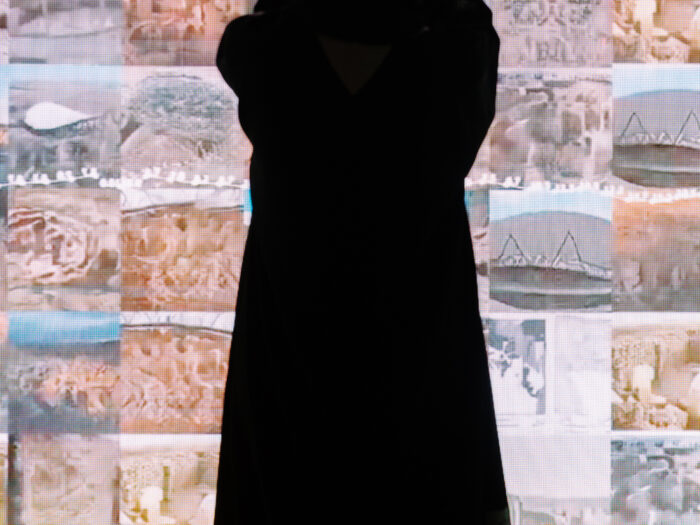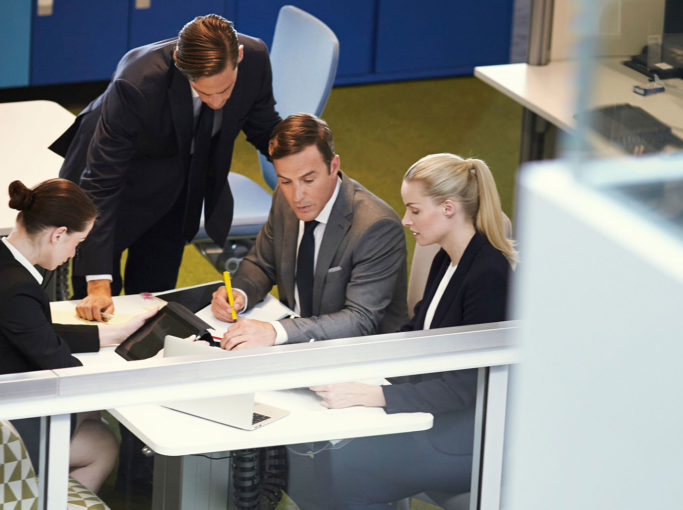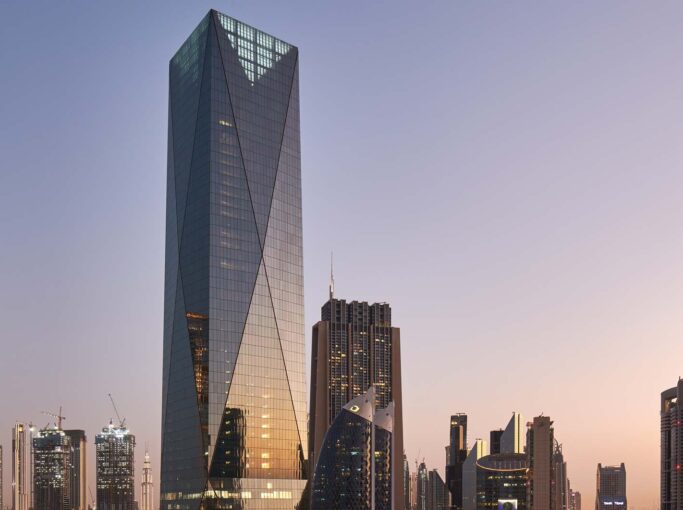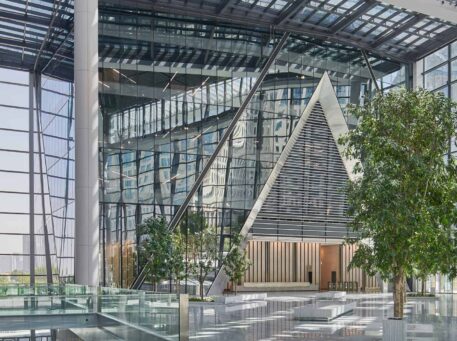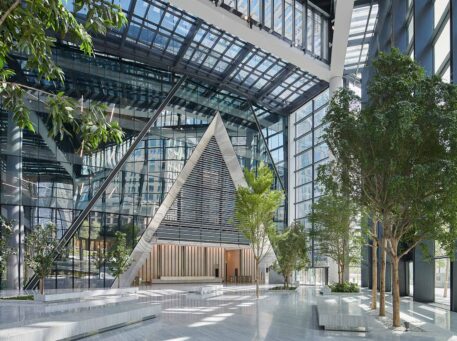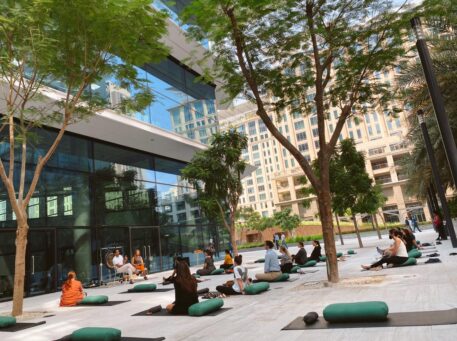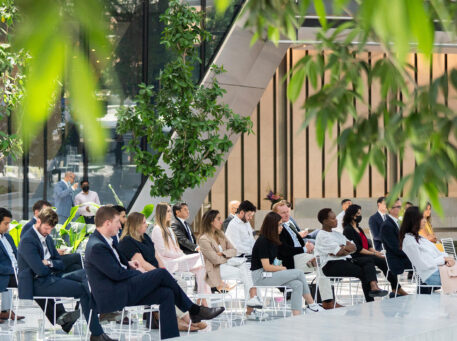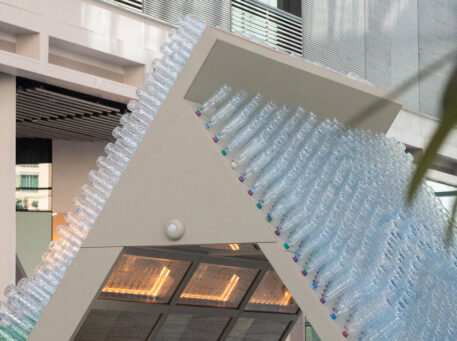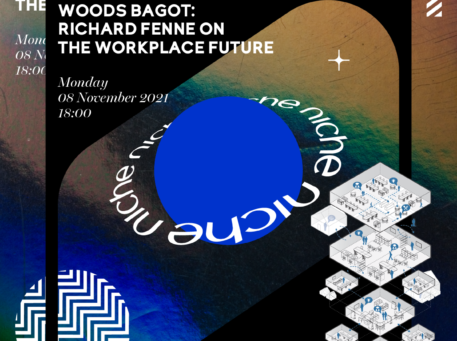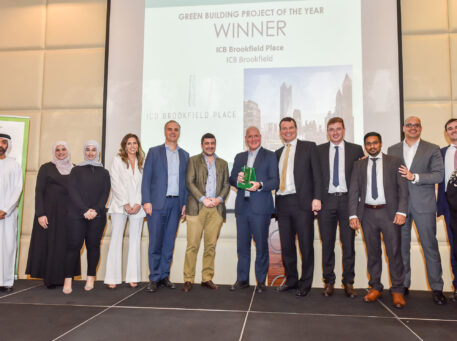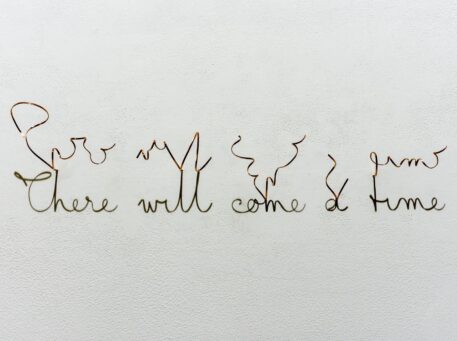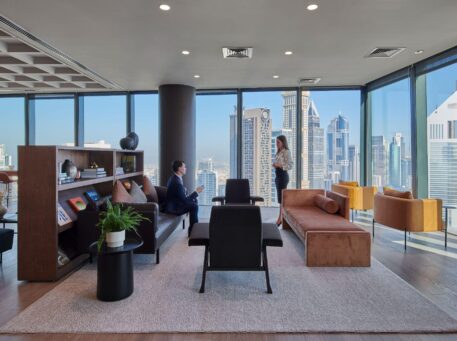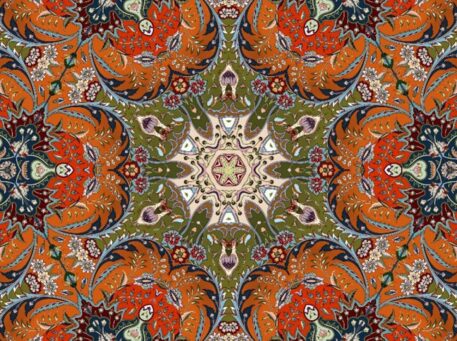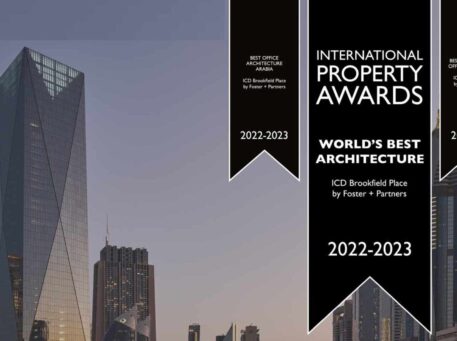STORIES
The office must no longer be just a place of work
The term office is synonymous with the notion of work (deriving from the Latin ‘officium’, ‘performance of a task’), and for many sectors in the knowledge economy it has long been the sole environment in which work, in this sense, takes place. As we continue through 2021 and many companies and people prepare to return to the office, the rapid shift to widespread working from home has shown that workplace productivity is largely unaffected despite taking place elsewhere. The question begs then, for employer and employee alike, “what is the future of the office as we know it?”
If anything, it is an expedition of the main change in the traditional definition of the office that has been taking place with the advent of the ‘lifestyle workplace’; namely that urban commercial spaces are being reimagined to serve both business and social purposes. These buildings are also beginning to serve more fundamental roles pertaining to culture, wellness and the various tenets of sustainability.
How the workplace has evolved to become more fundamentally important
The challenge to the real estate market is now “if the office is no more productive than the home, what does it need to provide in order for companies and people to want to return to it?”
The answer is straightforward: fundamentally, offices are where organisations, teams and people spend time together.
"In a post-COVID environment there is a need for offices and meeting in person to be not only worthwhile from a productivity perspective, but for time in the office to be creatively, culturally and socially enriching."
The need for good ventilation, natural light and more general wellness-oriented amenities and design is now widely acknowledged as not only important but mandatory for the modern office. Wellness is often overlooked when the benefits of remote working are discussed; it is an assumption that the flexibility not working in the office affords outweighs the specific features that fit-for-purpose places of work provide to make working stress-free and healthy. Where the contrary is true, it is incumbent on the market to ensure that commercial buildings do provide specific wellness benefits for their occupants. Indeed, Microsoft’s recent report ‘The Next Great Disruption is Hybrid Work – Are We Ready?’ outlines the coming challenge to companies and employees the world over: hybrid working, and the role of the workplace when it is not necessarily occupied by all of a company’s employees, all of the time. The role of the office needs to be one that offers respite from the increasing ‘digital fatigue’ being felt after one year of widespread remote working; and the increase in electronic communications required to do that but that is draining to mental health when it exists at the expense of more traditional, morale-boosting physical interaction. This phenomenon is well documented in Microsoft’s report, with fifty-four percent of respondents in a global study reporting that they feel overworked, whilst thirty-nine percent feel exhausted, theevidence is clear that high productivity is simply obscuring the fact the workforce is exhausted.
"From a cultural perspective, the office is where company culture can not only be created but fostered, and improved. There is little denial that colleagues feel the same closeness and accountability to each other on video conferencing as they do when they are in the same room. We can now re-think our office spaces to make them less sterile, and more atmospheric, positive and social in design and layout; especially with the inevitable reduction in need for actual desk space due to more people working at least partially remotely."
However, rethinking the office can only go so far in improving our work life. After all, the distinction between work and life itself is increasingly less clear, as much of the world transitions from industrial to knowledge economies. Where the office is, its locale, neighbours, community, amenities and its cultural and social sense of place are of equal or greater importance to its inhabitants as the design and quality of the office itself. Indeed, positive changes to the public realm are one of the most fundamental aspects of placemaking. Any city of global renown will commit a considerable amount of valuable land to the public realm, and this is evident in that many of the world’s most iconic locations are public spaces. Studies have shown that creativity and public realm investment of this nature improves them in such a way that the human experience of a place is evidently enhanced. The resultant desire to dwell in them then increases commercial real estate value, as well as public wellbeing.
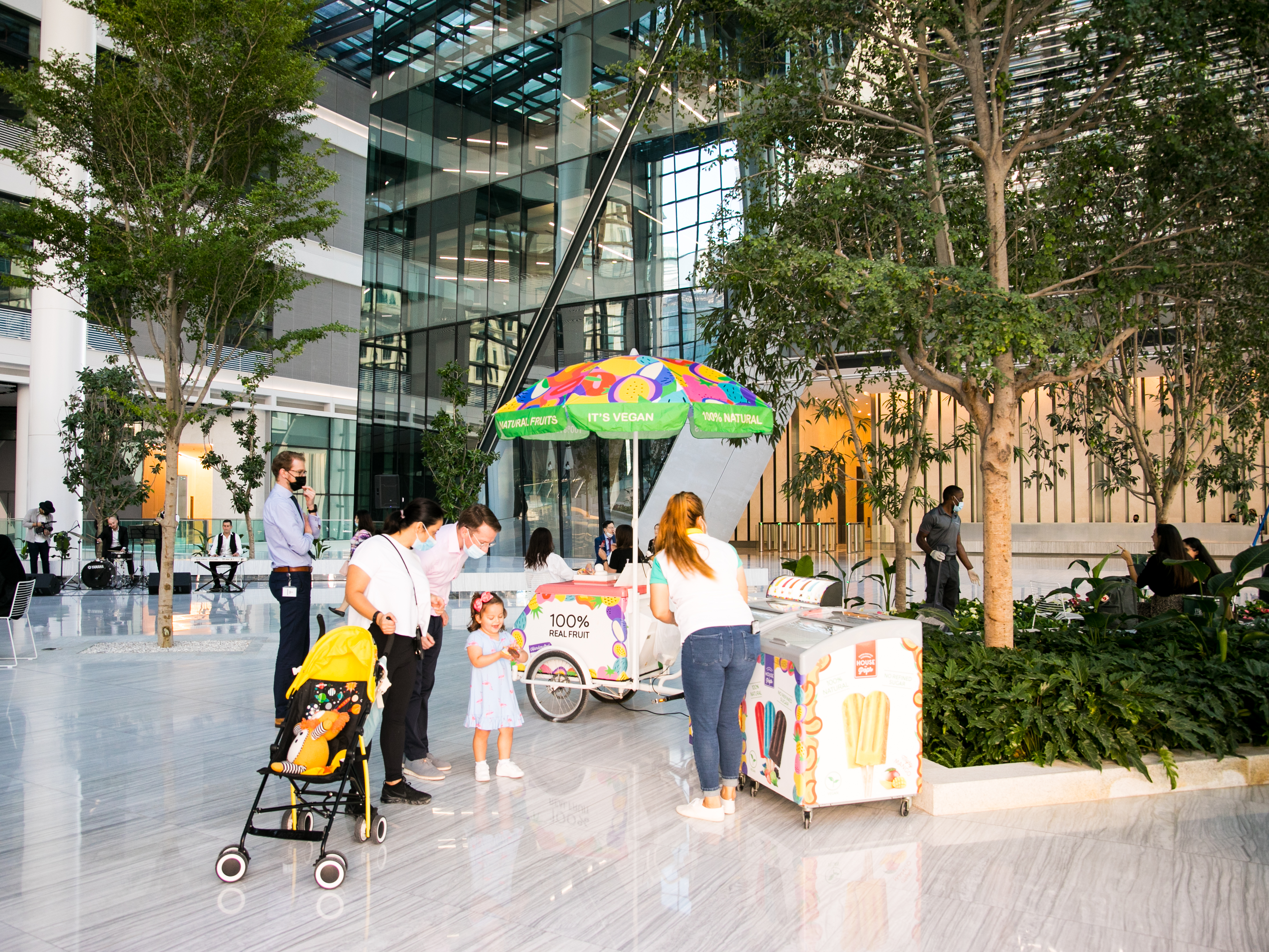
Designing spaces with people, moments and finding sanctuary in art & culture in mind
Equally, the onus is not only on developers to create space for culture, both corporate and in the traditional sense, to thrive; but on landlords to commit to cultural programming that brings people together. When life and work return to a level of normality, it is destinations that focus on the human experience that will thrive and stand out as worthy of our time, and our tenancy.
"ICD Brookfield Place has been designed with exactly this in mind: to engender productivity, creativity and sanctuary not only in the commercial spaces it provides people and companies, but in how these correspond with the public, retail and cultural spaces that they neighbour."
The summer garden - a five-storey space that is unique in Dubai due to its public access and combined wellness, social and cultural purpose - encapsulates the approach of Foster + Partners in designing ICD Brookfield Place with people and moments in mind, alongside commercial considerations. It makes a significant and grand gesture to the urban surroundings of the DIFC with its public realm and is set to be the backdrop to a robust public art programme that aims to foster further creativity in the UAE art scene. Regional new media studio Ouchhh recently created the first public art installation in ICD Brookfield Place - Datamonolith_AI. Using data from the pre-Pottery Neolithic period processed through a series of algorithms, the immersive digital artwork set a benchmark for what will follow: boundary-pushing unique works of art and cultural experiences that are free to the public.
The opportunity now is for the market to add value by creating buildings that not only meet the growing demand for mixed-use lifestyle and business destinations, but whose offices are designed with 2020’s learnings in mind. We can work from home, but we can work more collaboratively in a well-designed office. A lack of commute is not necessarily a gain of personal time, because the amenities that accompany many workplaces now offer us social, cultural and leisure time that fits around and enhance our workday. Ultimately, well considered offices and mixed-use buildings give us the opportunity to improve our daily lives and enhance our social interactions. The opportunity is huge for the developers and organisations that can embrace this, and that are bold enough to break from the office orthodoxy we are surely now prepared to leave behind.
